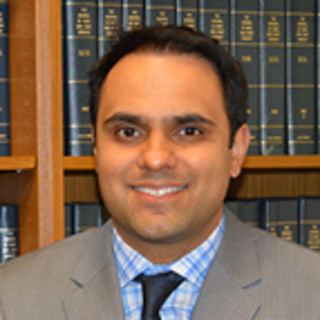Medicaid Expansion: A Specialist’s Perspective
The majority of Americans who obtained insurance under Affordable Care Act (ACA) did so under the program’s expansion of Medicaid. Reformers argue Medicaid growth runs amok; Medicaid spending in 2015 was $545 billion, a nearly 10% increase from the year prior and 17% of total national health costs. The ACA Medicaid expansion intrinsically creates a stumbling block to meaningful cost-cutting reform. Proposals terminating Medicaid expansion yield intuitive Congressional Budget Office estimates that many Americans will lose their insurance. These proposals lose convincingly in the court of public opinion.
A concurrent debate persists on the topic of “essential benefits,” or services that all private insurance plans must cover. The argument posed is that if essential benefits are limited (or even eliminated), insurance companies can offer cheaper insurance. Can this logic be applied to more justly cut costs in Medicaid, without sacrificing lives covered?
Medicaid is a vital government program that supports and provides healthcare to Americans near the federal poverty level. Compare this program to the Supplemental Nutrition Assistance Program (SNAP, more colloquially referred to as food stamps). Depending on family size, SNAP currently provides a $150–200 per person weekly limit on nutritional benefits. Presumably, a dollar amount was selected to serve as a safety net for those without resources to eat. There is little-to-no room for reckless or extravagant expenditure.
The Medicaid program employs no such meaningful limitation. Medicaid covers nearly all doctors visits and treatments, assuming the provider accepts Medicaid. Patients with private insurance (including the working poor under current ACA exchange plans) are faced with deductibles and copays that curtail utilization. This was the pointed issue leading Bill Clinton to famously declare the current circumstance, “the craziest thing in the world.” Some postulate copays and work requirements may alter Medicaid utilization, but copays charged to this population can and should only be minimal, and work requirements are cumbersome and potentially costly to enforce. Instead, essential benefits reform to the Medicaid program, under the ideology of SNAP, should be evaluated with the goal of cost containment.
Healthcare, like nutrition, is not black and white. Many physicians would agree that in our particular areas of specialization, certain conditions must be covered and certain standard therapies should never be denied or be cost-prohibitive for any person, regardless of finances. However, if pressed, perhaps we could also agree that certain conditions and treatments in our country compare more to organic filet mignon for dinner than to cereal and fruit for the kids. All Americans, including those on Medicaid, should have access to a primary care doctor and treatment by specialists when necessary. Should Medicaid recipients have access to second opinions (or third for that matter)? To the argument that this type of limitation of access to care is unfair or inhumane, note nearly all government-run health programs (e.g. Canada, Great Britain) apply standard limitations to their covered populations.
Could reforming essential benefits under Medicaid provide meaningful cost savings, or at least curtail its unsustainable growth? About half of health care expenditures in this country are for clinical services and inpatient hospitalization, so the potential is there. Perhaps the treatment of cardiopulmonary disease would likely remain largely unchanged. However, note that the leading cause of hospitalization of adults aged 45–65 is osteoarthritis, including degenerative spinal disorders. Should Medicaid pay for steroid injections, or a knee replacement for arthritis, or a spinal fusion for pain from degenerative spinal disease? Should opiates for chronic pain be covered? These are costly interventions that we cannot fairly argue routinely treat life or death conditions. Should treatments without evidence basis be covered? All specialties are unique, but we as specialists ought to be able to identify conditions and treatments in our lines of work that are less crucial to livelihood.
This is the fiscal issue on which the Medicaid program diverges from SNAP, where Medicaid now serves as far more than a safety net. Can we safely make Medicaid a cheaper insurance plan? To this end, managed Medicaid programs have already undertaken steps on a more individual and local level to proportion and contain services. A national team of caring healthcare professionals on a grander scale would be capable to more compassionately deliver definitive progress. A taskforce of physician experts from all medical and surgical specialties could oversee how to best provide resources to this population and determine what are essential benefits and what should not be covered. There needs to be an understanding within this group that this is not a bottomless pit; the ultimate goal of this reform would be to avoid rendering millions of Americans uninsured once again.
— —
Neal Luther is a neurosurgeon in Bedford, NH and a 2016–2017 Doximity fellow.






